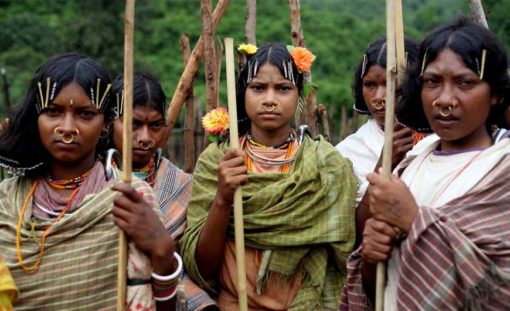
Today, on February 28, 2019, the Supreme Court stayed its February 13, 2019 order which could have caused possible eviction of 11.8 lakh tribal and traditional forest-dwellers.
A three-judge bench comprising Justices Arun Mishra, Naveen Sinha and M R Shah has also asked the states to file affidavits stating clearly the procedure followed while rejecting the claims.
JUST IN: Supreme Court stays its order which could have caused possible eviction of 11.8 lakh tribals. Court has asked states to inform it in what manner claims were decided.
— The Leaflet (@TheLeaflet_in) February 28, 2019
JUST IN: Supreme Court stays its order which could have caused possible eviction of 11.8 lakh tribals. Court has asked states to inform it in what manner claims were decided.
— The Leaflet (@TheLeaflet_in) February 28, 2019
Central Government and State Government of Gujarat seek a stay
On February 27, 2019, the Central Government and the State Government of Gujarat moved to the Supreme Court seeking to stay possible eviction of 11.8 lakh tribal and traditional forest-dwellers whose claims for right over forest land have been rejected under the Scheduled Tribes and Other Forest Dwellers (Recognition of Forest Rights) Act, 2006 (Forest Rights Act).
Solicitor General Tushar Mehta mentioned, before the bench of Justices Arun Mishra and Naveen Sinha, the applications on behalf of the Central Government and the State of Gujarat for urgent hearing.
Background of the case
On February 13, 2019, a three-judge bench of the Supreme Court, comprising Justices Arun Mishra, Navin Sinha and Indira Banerjee, directed the State Governments to evict tribal families and traditional forest-dwellers whose claims have been rejected by the competent authority on or before July 27, 2019 – when the matter will be heard next. The strongly worded order of the court states that:
“… in the cases where claims have been rejected and have attained finality, whether eviction has been ordered and possession has been taken or not. Let full status be disclosed in the affidavit. It is further directed that the cases in which the orders have attained finality, let eviction be made forthwith. In case of noncompliance of this order, the same shall be viewed seriously”.
The eviction order was passed by the Court on a batch of public interest litigation filed in 2008 by the Bombay Natural History Society and the Wildlife First NGO, which claimed to represent the interests of wildlife. According to the most recent estimate, the number of persons likely to be affected by this order is 18 lakh.
Indian’s top wildlife biologists, scientists and conservationists in a joint statement released on February 28, 2019, demanded to withdraw the February 13 order of the Supreme Court directing states to complete eviction of all those tribal and traditional forest-dwellers whose claims in respect of forest land had been rejected. They said the petition against the Forest Rights Act does not help wildlife conservation of forest and is unjust to tribal communities.




